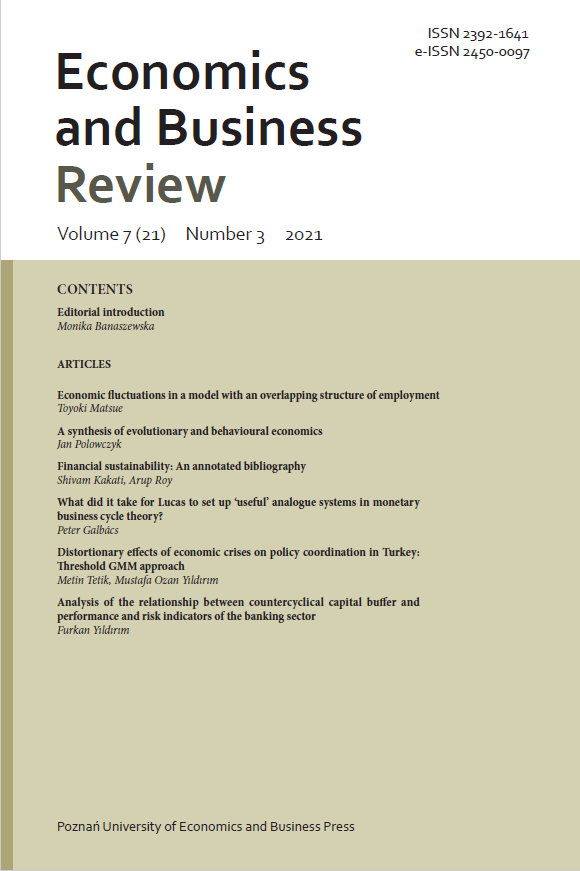DISTORTIONARY EFFECTS OF ECONOMIC CRISES ON POLICY COORDINATION IN TURKEY: THRESHOLD GMM APPROACH
DISTORTIONARY EFFECTS OF ECONOMIC CRISES ON POLICY COORDINATION IN TURKEY: THRESHOLD GMM APPROACH
Author(s): Metin TETİK, Mustafa Ozan YıldırımSubject(s): Economy
Published by: Wydawnictwo Uniwersytetu Ekonomicznego w Poznaniu
Keywords: economic crises; fiscal policy; monetary policy; nonlinear econometric model; policy coordination; Threshold GMM
Summary/Abstract: This study investigates the interaction between fiscal and monetary policies and how crises affect the coordination between policymakers in Turkey. This study’s novelty is that a nonlinear Taylor rule indicating monetary policy response function is estimated based on the Threshold Generalized Method of Moments (Threshold GMM) methodology over the period January 2006—March 2020. The empirical findings reveal that when fiscal policy has an expansionary stage, especially in crises times, the policy interest rate does not react significantly to the inflation gap, output gap and real effective exchange rate gap in expansionary periods. On the contrary the policy interest rate gives statistically important responses to these variables during contractionary fiscal policy periods. Thus, the effectiveness of the Taylor rule appears in a period of contractionary fiscal policy. This situation gives rise to the significant policy implication that the monetary policymaker’s success in controlling inflation increases with the contractionary fiscal policy. Finally, it has been observed that effective coordination between monetary and fiscal policies did not occur during crisis periods, but compatible coordination was achieved in other periods.
Journal: Economics and Business Review
- Issue Year: 7/2021
- Issue No: 3
- Page Range: 83-102
- Page Count: 19
- Language: English

